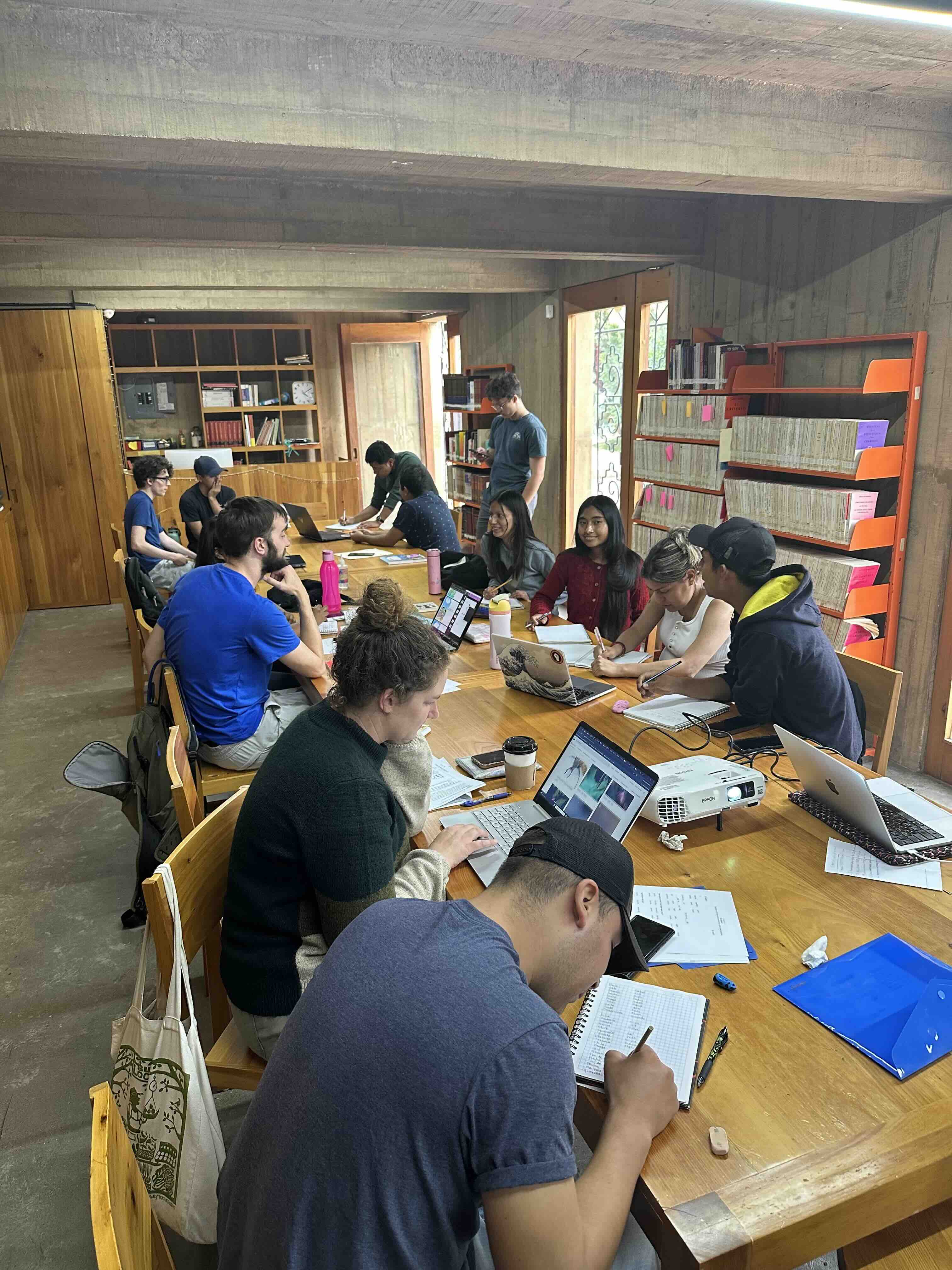
Program Contact
Raichle Farrelly
Teaching Associate Professor
rai.farrelly@colorado.edu
802.999.3321
This project is an Indigenous language revitalization project in which students and faculty at CU work with members of the Zapotec speech community in Teotitlán del Valle, Mexico to develop materials for revitalizing the Zapotec language. Zapotec is an endangered Indigenous language spoken in southern Mexico. Efforts to teach Zapotec are hampered by a lack of available materials.
Department of Linguistics professors Ambrocio Gutierrez Lorenzo and Rai Farrelly co-taught a language pedagogy course in which they combined their expertise in Zapotec and language teaching respectively to give students the opportunity to learn a new language while developing teaching expertise. While innovating materials to teach Zapotec, they had the idea to collaborate with the Zapotec community to create culturally appropriate materials to foster language revitalization. They launched the project with a CU Global Seminar in June 2024 during which CU students worked directly with members of the speech community to learn Zapotec, explore teaching methods, and co-create materials to teach Zapotec.
This project expands upon materials design efforts throughout the year, involving graduate students from (computational) linguistics and TESOL (Teaching English to Speakers of Other Languages), as well as undergraduate students interested in language teaching and Indigenous languages. Together under the guidance of Profs. Gutierrez and Farrelly, they will develop: 1) teaching materials for Zapotec, 2) a user-friendly website to access materials, and 3) a repository to store and update materials. Materials will be readily available in multiple formats to members of the Zapotec speech community. These materials can also be accessed and used by instructors or researchers.
The program incorporates activities at CU Boulder, including materials design, publication of online Zapotec teaching and learning resources, development of language learning apps, and regular meetings about the project. It also involves delivery of Zapotec instruction in Teotilán del Valle by one of our community collaborators who will be teaching young learners using materials developed through this project.
Zapotec Language Materials Design
Additional Info
In collaboration with the Zapotec speech community in Teotitlán del Valle, two MA Linguistics students and three Linguistics faculty members will be developing materials (print and digital) to promote the use, maintenance, and revitalization of the Zapotec language (Teotitlán del Valle, San Bartolome, and San Miguel varieties).
Materials development will take place in Colorado, however, developers will be in contact with Zapotec collaborators in Mexico throughout the year via WhatsApp and email to gather language data and input on the materials. Teachers in Teotitlán del Valle will pilot the materials with learners in town and provide feedback on their efficacy in the classroom. Students who participated in the Global Seminar to Teotitlán del Valle in Summer 2024 began the materials design process and will continue to be a source of input and ideas for the project throughout the academic year.Location
in colorado
Boulder
Dates
Ongoing
Public or Private
Private Program (by request only or for a specific audience or group)
Program Fee
Not Applicable
Sponsoring Units
College of Arts & Sciences
- Department of Linguistics
Program Partners
- Department of Linguistics
- Center for Native American and Indigenous Studies (CNAIS)
- Centro Cultural (in Teotitlán del Valle, Mexico)
- University of Colorado Boulder Indigenous Languages Club
Audiences Served
- Adult Learners
- Children & Youth (outside school)
- Families
- General Public
- Historically Excluded/Marginalized/Non-dominant Group(s)
- Indigenous Populations
- People Of Color
- People Who Identify As Women, Girls, and/or Females
- Rural Communities
- Students - Elementary School
- Students - High School
- Students - Middle School
- Teachers - Early Learning
- Teachers - Elementary School
- Teachers - Middle School
- Teachers - High School
Topics:
- Arts and Culture
- Adult Education
- Education and Technology
- Anthropology
- Informal and Community Education
- Diversity, Inclusion and Equity
- Literacy
- Racial, Ethnic and Cultural Diversity
- Foreign Language and Literature
- Educational Research and Resources
- Technology
- Ethnic Studies
- K-12 Education
- Linguistics
- Linguistics
- Visual Arts (Drawing/Painting/Ceramics/Sculpture/Photography)
- Humanities
- Social Sciences
- Other